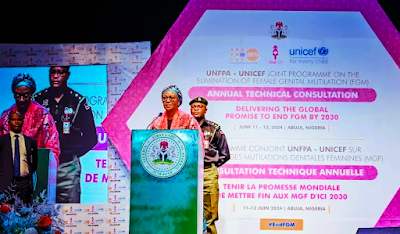What about love? What to write?
Floundering, St Valentine’s Day dawned bright
And brought with it unexpected insight.
Sunday Worship[i]
on the radio spoke to me something quite new
That whilst Jesus taught ‘love’ was what Christians must do,
Its opposite isn’t hate. There’s another point of view.
The opposite to love, said the speaker … and I pricked up
one ear,
The cause of all prejudice, neglect; great hurt far and near
Is not hate. Hate’s not love’s flipside. No … love’s
opposite is fear.
After that programme I got a call from a friend
And we talked of a marriage that had come to an end
Of a man fearing his true self was one none could love, nor
comprehend.
So, spider-like he wove a web of lies and deceit
Held together by shame, hiding acts so discreet
That his wife and children ne’er heard that other drumbeat
Until its crescendo, like a tsunami rumbling in,
Crashed through the marriage with confessions of sin.
And his wife’s trust was shattered, but his children still
loved him.
Their love and his family’s, guided them through
Though they’re living apart, they’re beginning anew,
Avoiding hurt, shame and fear; avoiding hullabaloo.
Then I talked with another friend about this Valentine’s Day
Remembering her father who just last year passed away
And the love of our parents, always felt, always with us to
stay.
And just as we were parting she suddenly said, “‘It’s a
Sin’[ii]!
The programme I mean.
Have you seen it? Have you seen Imari[iii]?”
Whom we’d watched as a teen
Work his way from youth theatre to the national thespian scene.
So as this Valentine’s Day ended, in twenty, twenty-one
I watched ‘It’s a Sin’ and was transported back to when
the AIDS pandemic had begun.
When fear seeped into lives o’er the world, and into mine, when
my children were young.
And I remembered how in Lagos I feared for my lovely gay
hairdresser and the people he knew.
And I feared my sons would wriggle, be snipped by barbers’
shears and get AIDS so I let their hair grow.
And I feared buying bad blood one dark, nightmare night for
our meguard whose skull was macheted clean through.
After a while pandemic palava died down
Though HIV spread, there were treatments around
And people showed love to those HIV-stricken; put away masks and
gowns.
Until twenty fourteen[iv]
when …
In Nigeria, a country beset by strife and division,
Where basic necessities are wanting in provision,
A populist president found a wheeze to unite all religions.
He united Nigerians by stoking fear of gay men
Who had lived and been let live but were now condemned
To hide, risk stoning , risk prison and risk too, the lives
of their friends.
The Anglican archbishops put love to one side.
The Islamist North turned on ancient yan daudu[v]
they’d long lived beside
And 98 per cent of people thought gays shouldn’t survive.
Bishops and terrorists, tele-evangelists too
Poured their poisonous preaching into a virulent stew
Of hatred kept boiling by the fears of a few.
So, my meandering through love on this Valentine’s Day
Found me wondering why those preaching love have just
platitudes to say
Which people nod along to yet go on their way
To cast the first stone at people they know not, whom they yet
fear
Forgetting the command Jesus, whether teacher or prophet, had
asked them to hear:
“Love one another. As I have loved you, so you must love one
another.” Don’t fear.
[i] Sunday Worship Facets of Love BBC Radio 4
Sunday 14th
[ii] It’s A Sin Channel 4 4-part mini-series
2021
[iii] Imari Douglas, Wolverhampton born actor who plays
Roscoe Babatunde in It’s A Sin
[iv] 2014 Same Sex Marriage Prohibition Act (SSMPA)
signed into law by President Goodluck Johnson having been passed with
overwhelming cross-party support by the Nigerian legislature. It criminalises
homosexuality and proscribes 14 year prison sentences, or death by stoning in
northern areas subject to Sharia Law, for being homosexual and provides sentences
for people supporting or promoting homosexuals. “Expressions of affection
between two people of the same sex” become illegal. The Act was an ‘open
sesame’ moment for vigilante and police attacks on suspected homosexuals and
although arrests have been reported under the act, most arrested were released
after the payment of large bribes or bail and in 2019 one of the most notorious
Lagos trials was dismissed by the judge for lack of prosecution evidence.
[v] Yan Daudu – communities of muslim homosexuals and
transvestites which grew up along the ancient trans Saharan trade and slave
routes of northern Nigeria. Most yan daudu are poor, illiterate and
harassed. Those who have survived earn their living nowadays as food sellers
and in the sex trade, often as go-betweens for female prostitutes.
















